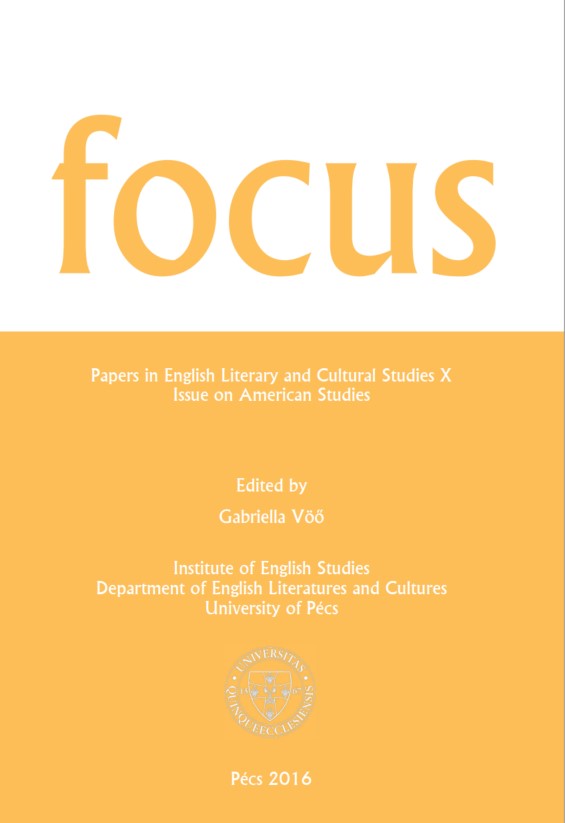Magdolna Jákfalvi, ed. “A performativitás mint fordulat” (Performativity as a Turn). Filológiai Közlöny (Philological Review) 62.4 (2016): 261-445.
DOI:
https://doi.org/10.15170/Focus/10.2016.11.114-118Abstract
Since the “performative turn,” which dates back to the 1960s following John L. Austin’s presentation of findings about the performative power of speech acts in 1955, this phenomenon, Magdolna Jákfalvi claims in her preface as editor to this journal issue, has been the object of ongoing research and became an effective tool of literary interpretation, and later a norm of analysis (262). Indeed, while they have been in use for a considerable time, the terms performative and performativity are somewhat protean, their meanings likely to change when applied to the study of different aspects and domains of cultural life and practices. Most of the essays collected here under the title “Performativity as a Turn,” Jákfalvi adds, draw on a conference held in Budapest in May 2016, which purported to explore manifestations of the performative as well as to demonstrate the visibility and test the uses of the term in critical discourse. Understandably, a reconsideration of the meanings of performative and performativity is spreading, overtly or covertly, and to varying degrees, as a kind of fil rouge across the essays of the collection. Jákfalvi has divided the remarkable wealth of the material, altogether thirteen essays to be included in three groups, which are provided with the headings “Performatív elméleti paradigmák” (Theoretical paradigms of the performative), “Performatív realitás” (Performative reality), and “Performatív textualitás” (Performative textuality) respectively.
Downloads
Published
How to Cite
Issue
Section
License
Copyright (c) 2022 FOCUS: Papers in English Literary and Cultural Studies

This work is licensed under a Creative Commons Attribution-NonCommercial-NoDerivatives 4.0 International License.
FOCUS: Papers in English Literary and Cultural Studies follows the principles laid down by Creative Commons, which provides guarantees for the Author’s copyright while also ensuring that intellectual properties are made available for the wider public in a digital form. All papers submitted to the journal apply the following licence conditions (indicated on the journal’s website as well as in individual publications):
“© This work is licensed under a Creative Commons Attribution-NonCommercial-NoDerivatives 4.0 International License.”
You are free to:
- Share, copy and redistribute the material included in the journal in any medium or format under the following terms:
- Attribution — You must give appropriate credit to the Author, and indicate the original place of publication [FOCUS: Papers in English Literary and Cultural Studies, Issue nr., page numbers.].
- NonCommercial — You may not use the material for commercial purposes.
- NoDerivatives — You are not allowed to remix, transform, or build upon the material.
- The above conditions must always be indicated if the journal material is distributed in any form.
- The above conditions must always be met, unless a written permission signed by the Author and the Editor-in-Chief states otherwise.

